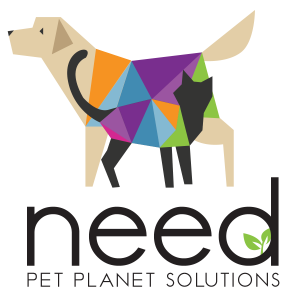By Dr. Al Townshend
The term Probiotics refers to the live microorganisms (mostly bacteria) that inhabit the digestive tract of all animals. They are the specific microorganisms that can exert benefit when in the proper levels in the digestive tract. Many refer to them as the “Good Bacteria” because they are so important to the health of all animals.
There are at least 500 different species of microorganisms that have been identified in the normal microbiome of dogs and cats. The term microbiome refers to all of the bacteria in the pet. It is important that the microbiome is kept in balance. It is when the balance is altered the pet can have problems. It is important that the balance is maintained through regular re-inoculation. Some healthy members of the microbiome are better than others in providing benefits to our pets and those are termed are called Probiotics or the “Good Bacteria”.
Humans can naturally replenish and maintain good levels by consuming cultured yogurt, buttermilk, sauerkraut, and cheeses. Our pets are also exposed to Probiotics thru what they eat and the environment. Grooming, interacting with other pets, eating a little dirt, and smelling a few butts are all ways dogs and cats are exposed to the Good Bacteria.
There are some commercial pet foods that have added probiotics to their recipes. Those foods provide additional bacteria to the digestive tract each time the pet eats.
Many pets, especially those typically under stress (young and senior pets, pets that are sick or recovering) can profit from supplementing the diet with Probiotics.
Common Probiotics that can be found on the ingredient panel of the food package are: Enterococcus faecium, Lactobacillus acidophilus, Bifidobacterium species, Bacillus coagulans.
Prebiotics are ingredients in the diet that are ideal nutrients for the “Good Bacteria”. The pet gets no direct benefit from these ingredients, as they are specifically intended to help keep the Probiotics healthy. The benefits to the pet come from the Probiotics staying healthy and supporting proper digestion and improving the immune system.
Common Prebiotics that can be found on the ingredient panel of the food package are: Inulin, Chicory Root, Beet Pulp, Oligofructose, and Fructooligosaccharides (FOS).
Prevention is the Best Medicine
Immune Health
Maintaining optimum levels of Probiotics in the digestive tract is one of the best ways to prevent problems.
- About 70% of a pet’s immune system is in the digestive tract. Probiotics are an essential part of the digestive immune system. The Good Bacteria produce nutrients that nourish the cells on the internal lining of the gut.
- They are known to encourage the production of antibodies.
- Large amounts of Good Bacteria can discourage bad bacteria from getting a foothold in a pet and causing disease.
- Puppies/kittens and seniors are susceptible to stress. Probiotics are known to reduce the risk of stress-induced infections.
- Some studies have suggested that Probiotics can play a role in reducing the signs of an allergy in dogs.
Digestive Support
- Probiotics can improve the digestion of the food our pets eat. That is extremely important not only for the pet but for the Guardian as well.
Feeding a quality diet to our pets can be costly initially, but the long-term benefits far outweigh the short-term expense. Providing a total daily diet that includes probiotics helps to assure Guardians their pets are getting the maximum nutritional benefit from the foods they feed.
- Probiotics supplementation is also a valuable tool in treating certain conditions. Small Intestine Bacterial Overgrowth (SIBO) and Inflammatory Bowel Disease (IBD).
- Pets that have to be on antibiotics should also be on probiotics. Antibiotics not only kill the bad bacteria, but they can also kill the Good Bacteria, resulting in diarrhea.
- Dog, more commonly than cats, are known to eat things they shouldn’t. Spoiled garbage, dead animals can all expose the pet to infections from Salmonella and other serious infections. Having a Probiotic supplement on hand at home can help a pet recover more quickly without an emergency visit to the veterinarian.
Providing Probiotics in the diet every day is the best way to maintain the proper balance of the microbiome, enhance the immune system, and assure maximum digestion of the foods we feed our pets.
____



